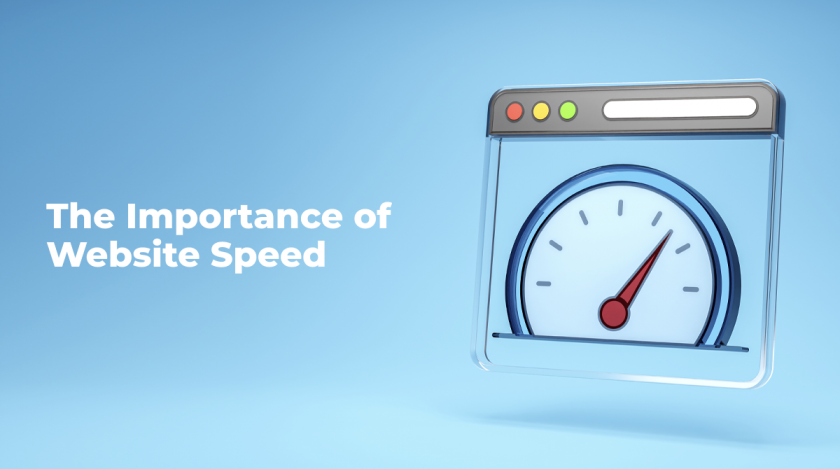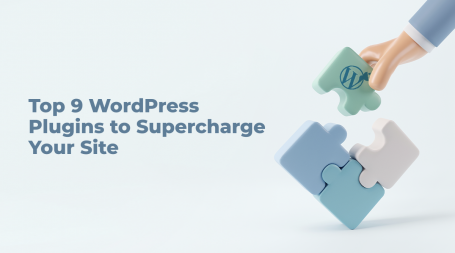In this article, we are going to overview the importance of website speed as it helps form the first impression for a visitor of that website and business.
We all know that the internet is a fast-paced world. Users expect to be able to find any information from personal loan vs home equity loan to an apple pie recipe quickly and efficiently. Website speed has become increasingly important for businesses in recent years. In fact, Google has even stated that site speed is a factor in their ranking algorithm.
That means that if your site isn’t loading quickly, you could be missing out on valuable traffic and potential customers. So how can you ensure that your site is up to speed? We’ll look at the importance of website speed and some tips on optimizing your site for faster load times. Stay tuned!
Why website speed is important for both users and search engines
Website speed is important for both users and search engines. For users, slow website loading speeds can result in a poor page experience. It can prevent customers from returning to the website. According to Statista, 58% of Americans expect a website to load within 3 seconds or less. Although there are no high expectations, as in China (73%), Americans value fast websites and expect such results from every website.
As such, webmasters must strive to bring down download times as much as possible. Search engines also prioritize fast-loading websites; a slow-loading website will rank lower than its faster competitors, resulting in fewer visitors than it might otherwise receive.
Furthermore, faster websites help decrease server costs and enable businesses to get more out of their hosting investments. Ultimately, focusing on website speed is an essential part of creating an optimal user experience while maximizing visibility on search engine results pages.
How to test your website’s speed and identify areas for improvement
Checking the speed of a website is important to ensure that users have a positive experience when visiting the page. After all, visitors are unlikely to wait around for pages to load. Testing a website’s speed involves several steps, from actual loading time analysis to optimizing assets and minimizing third-party scripts.
Several types of page speed tests can be run using free online services or hosting providers. Testing can reveal slow elements on a website and how long it takes for content to load fully.
Data can then be used to pinpoint any areas needing improvement so that adjustments can be made accordingly. From there, you should focus on optimizing media such as images and video, which can create huge lags depending on the size and amount used.
Finally, ensuring that third-party scripts are kept orderly – including limiting tracking codes – is key in making sure that sites deliver content quickly and with minimal burden on server resources.
Tips for optimizing your website
Optimizing your website’s code, images, and other content for faster loading times will immensely impact your user base’s overall experience. It ensures a better user experience and can help you boost your search engine ranking.
Start by minifying your HTML, CSS, and JS codes to reduce the file size, and pages should be optimized with gzip compression before being uploaded onto the server. Image optimization is another important element that needs adequate attention; use JPEGs for photos and PNGs for web elements exclusive of artwork or illustrations as it has been widely accepted as a best practice.
Through this process, you are able to reduce the size of images without losing quality, thus reducing loading time significantly. Last but not least, using caching techniques can also help optimize resource utilization while making sure that there is no unnecessary strain on web servers whenever requested files are downloaded from them.
All in all, implementing these simple tips can help enhance speed dramatically and make your users’ journey smoother!
The benefits of using a content delivery network (CDN) to improve site speed
Utilizing a content delivery network (CDN) is a great way to improve the speed of your website. A CDN is an interconnected system of distributed servers that disperse the content to users based on their geographic location, thereby creating faster browsing experiences for visitors. By obtaining content from the closest server, you can reduce latency and increase user satisfaction because the content will load faster.
Additionally, CDNs utilize caching strategies that store commonly requested assets such as HTML documents, stylesheets, images, videos, and other assets in numerous locations around the world so they can be accessed more quickly when requested by a user. With these benefits in mind, it is easy to see why using a CDN should be integral to any successful website’s infrastructure.
How to use caching to improve the performance of your website
Utilizing caching strategies is one of the most effective ways to improve the performance of your website. Caching involves storing frequently used data in a temporary storage area. So that the client can access the website more quickly and easily.
There are different ways to apply caching to websites, such as page, database, and browser caching. Depending on the structure and design of your website, you may choose to implement some or all of these methods.
Page caching increases loading times for static content, like images, videos, or text, which doesn’t change much. You may use database and browser caching to get data from memory rather than a remote database or web server.
All in all, adding cache layers to a website has numerous performance benefits without any drawbacks – making it an excellent way to optimize sites for optimal speed and efficiency.
The importance of regular maintenance in keeping your site running smoothly
Maintaining your website regularly is essential to keeping it running efficiently. Regular maintenance can prevent slow loading times, broken links, and security risks on neglected websites.
Keeping up with regular maintenance will ensure your site stays secure and any running processes will function properly. Regular updates and security checks will protect users’ valuable data from hackers as well as ensure a consistent user experience.
Regular maintenance for your website should include examining server performance in addition to optimizing HTML/CSS documents, images, scripts, etc. Doing so will not only maintain the integrity of your website but also provide tangible results, such as improved page ranking from search engines that value efficient and secure sites.
The Importance of Website Speed Conclusion
The Importance of Website Speed isn’t something to simply gloss over. It can drastically affect whether users stay on your website. It will even contribute to your website’s ranking in search engines. With that in mind, consider the importance of testing and regularly monitoring your website’s speed.
Keeping your site running smoothly requires caching, using a Content Delivery Network (CDN), and regularly checking for issues. To keep a fast website optimized, you’ll need to commit time, effort, and commitment, but the rewards are worth it!















